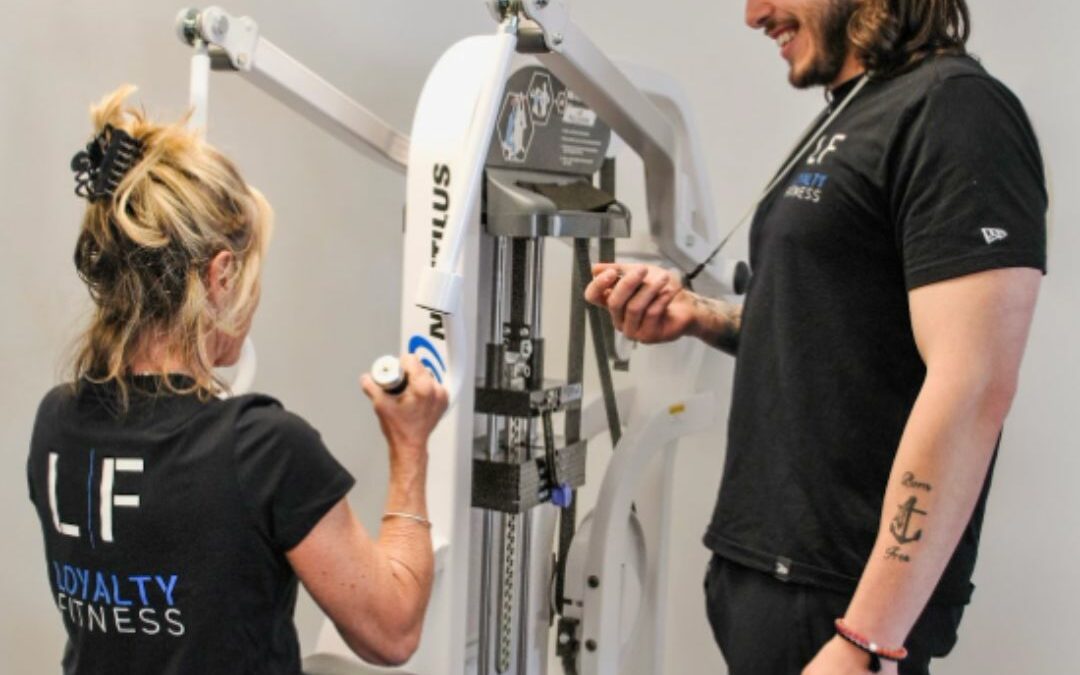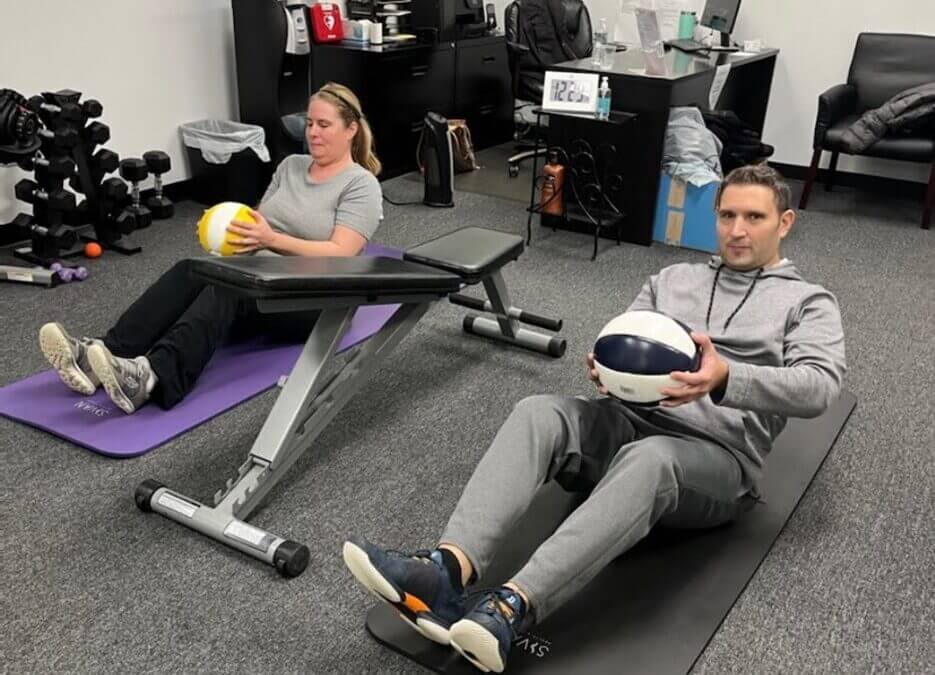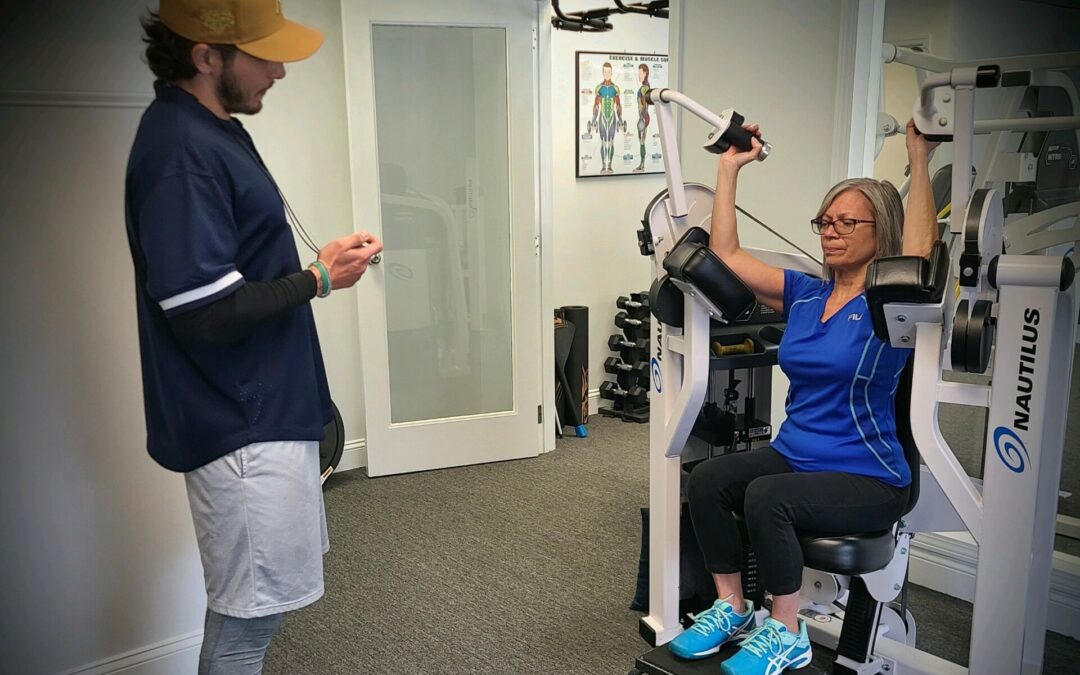Regular exercise has long been considered one of the best ways to strengthen physical fitness and improve overall well-being. However, recent studies have shown that physical activity and frequent exercise also significantly benefit our mental health by reducing depression, anxiety, and stress levels.
Super slow strength training, offered by Loyalty Fitness, is one such form of exercise that can have a significant impact on mental health.
In the following article, we’ll highlight some of the many ways physical activity, particularly super slow strength training, can help improve brain function, fight depression, alleviate anxiety, and contribute to additional mental health benefits.
Physical Activity Improves Brain Function
Unlike some of the more trendy or traditional forms of exercise, super slow strength training focuses on the quality of the physical movements – rather than the quantity.
During super slow strength training, participants perform each movement slowly and deliberately, typically taking around 20 seconds to complete each repetition. Many of the articles and materials written about these exercises focus on their effectiveness in building muscle mass and improving bone density.
However, the benefits of super slow strength training are not limited to physical health benefits alone. Research has shown that strength training exercises can significantly improve brain function, particularly in older adults. Another study found that those who engaged in super slow strength training (and other forms of physical activity) experienced improved executive function as well as increased cognitive flexibility.
Additionally strength training has also been shown to have a positive impact on memory. A recent study found that adults who engaged in strength training exercises saw improved memory recall compared to those who did not participate in any form of exercise.
Physical Activity Reduces Symptoms Of Depression and Anxiety
Depression is a mental health condition that affects millions of people worldwide. While there are various medications available to help the symptoms of depression and anxiety, research has shown that physical activity can be an effective way to not only reduce symptoms but even help treat these mental health conditions.
Regular exercise, including super slow strength training, can have a positive impact on depression/anxiety by increasing the release of endorphins in the brain.
Endorphins- also known as the “happy hormones”- are the body’s natural painkillers. This group of hormones both relieves pain and creates a general feeling of well-being. They act as natural mood elevators and regular exercise can significantly increase their production.
According to research conducted by the National Institute of Mental Health, adults who engaged in a strength training program for just 10 weeks saw a significant reduction in their depression score.
Since regular exercise improves physical strength and can contribute to weight loss, participants often enjoy improved self-esteem as well as a sense of accomplishment. Both of these factors may help depression and anxiety. Plus, a regular exercise routine also provides individuals with a heightened sense of purpose and motivation which is particularly beneficial for those who struggle with mental illness.
Physical Activity Decreases Stress Levels
Stress is a common experience for many people. Not all stress is bad, but chronic/unmanaged stress can have a significant impact on mental health. Regular exercise, particularly super slow strength training, can help manage and decrease stress levels.
During super slow strength training sessions, the participant focuses on each movement, which requires increased concentration and mindfulness. This forces you to focus on the present moment- instead of worrying about the future or ruminating on the past- and acts as a form of meditation which leads to a positive impact on stress levels.
Physical activity has also been shown to reduce high levels of cortisol in the body. Also known as the “stress hormone,” cortisol can contribute to an elevated heart rate and high blood pressure. Both of these conditions can have negative impacts on physical and therefore mental health. Performing regular exercise, particularly super slow strength training, helps regulate the production of cortisol and promote overall well-being.
Enjoy The Mental Health Benefits Of Super Slow Strength Training
Physical and mental health go hand in hand. Not only is regular exercise crucial in maintaining and improving your physical health, but the same can be said for your mental health and wellness as well.
By exercising regularly, especially strength training, you can enjoy an array of mental wellness benefits, including increased cognition, reduced symptoms of depression, lower levels of stress and anxiety, better quality of sleep, and so much more.
At Loyalty Fitness, our super-slow strength training method helps you enjoy the numerous physical and mental health benefits without high risk of injury. This is especially important if you’ve had previous injuries, suffer from chronic pain, or are returning to fitness after an extended absence.
Contact our team today to schedule a personal training session to improve your body AND brain!
CHALLENGE
Do at least one thing daily that brings you joy and get in at least two strength training sessions/week to boost your mood and decrease your stress!






